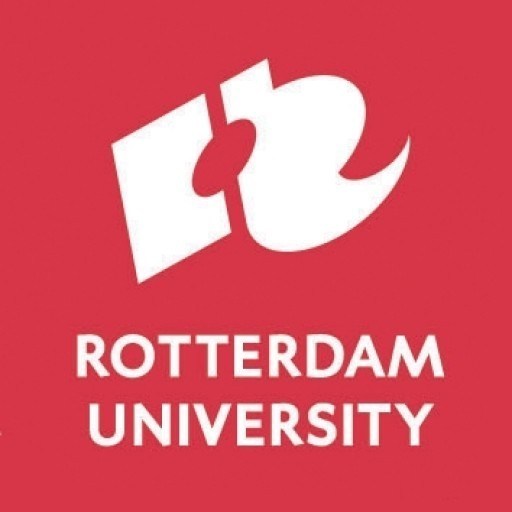Photos of university / #radboud_uni
Organisations need to constantly adjust how they can best fulfill their task of providing goods and services to society and meaningful employment to their members. Customer and market requirements might change, or new production methods or technology become available. If there are underlying structural issues, these need to be addressed in the organisational design. However, a grand plan for change that forgets about the people who are to carry it out will not work. Likewise, a plan that focuses only on the soft factors and ignores the root causes is almost certainly doomed to fail. That’s why Radboud University offers the specialisation in Organisational Design and Development. You’ll be taught the integrate interplay between design and development. You’ll become a flexible leader who knows how to get people involved from the start and who understands that plans need to be adjusted to deal with unforeseen bumps along the way.
This specialisation takes corporate social responsibility as its starting point: how organisations can operate efficiently while never losing sight of the people involved. Customers, personnel, local residents, related governmental organisations, but also the organisation’s future plans and current reputation (i.e. risk management) are all part of that. Corporate social responsibility is a moral and ethical issue, but also a strategic one of managing reputational risks and creating commitment among employees and investors. The specialisation builds on the tradition of socio-technical system design that aims to jointly optimise both the social and the technical aspects of an organisation. You’ll explore the possibilities of organisational development and the barriers that may arise. Put simply, you’ll learn not just what needs to be changed, but also how this can best be done.
Accreditation: NVAO
Erasmus Mundus program: This is an Erasmus Mundus program.
Instruction modes
case study, literature study, gaming, oral presentation, internship, computer exercise, research, computer modeling, research project, excursion, research proposal, tutorial, lecture, design project, working group, group assignment, portfolio, workshop, group discussion, poster presentation, self evaluation, individual assignment, practicum, self study, integration module, project
A completed Bachelor's degree in Business Administration or related area from a research university
Ideally, your Bachelor's degree should cover the following courses:
- Organisation Theory
- Strategy
- Marketing
- Human Resource Management
- Finance
- Statistics
- Quantitative and Qualitative Methods
- Bachelor’s thesis of 12 EC
Proficiency in English
In order to take part in this programme, you need to have fluency in both written and spoken English. This requirement has been satisfied when the student meets one of the following conditions:
- Has successfully completed a three-year Bachelor's programme at a Dutch university.
- Is a citizen of Australia, Canada (with exception of Quebec), Ireland, New Zealand, United Kingdom, or the United States of America.
- Has successfully completed a Bachelor's programme that was taught completely in the English language in one of the following countries: EU/EEA-countries, Australia, Canada, New Zealand, United States of America.
- Has successfully completed a Master's programme from a Dutch university of applied sciences (HBO).
All other students need one of the following certificates (TOEFL and IELTS certificates may not be older than two years). No other certificates will be accepted:
- A TOEFL score of ≥ 90, with subscores not lower than 18
- A IELTS score of ≥ 6.5, with subscores not lower than 6.0
- Cambridge Certificate of Advanced English (CAE) or Certificate of Proficiency in English (CPE) with a mark of C or higher
There are various scholarships available for studying at Radboud University. Some of the opportunities are described below. A full list, including detailed information, can be found on our scholarships and grants page at our website.
Radboud Scholarship Programme
Open to a select number of excellent international students. Instead of the institutional tuition fees, non-EEA students pay the legal tuition fees (€2,006 in 2017/2018). Visa and residence permit costs, liability insurance and health insurance are also covered.
Orange Tulip Scholarship
Open to students from Brazil, Mexico, Russia, Indonesia, South-Korea, Vietnam, Thailand, and China. Instead of the institutional tuition fees, non-EEA students pay the legal tuition fees (€2,006 in 2017/2018). Visa and residence permit costs, liability insurance and health insurance are also covered.
Fulbright-Radboud Scholarships
Open to excellent American students. The grant will be paid in 12 monthly instalments of 1,050 euros. International travel and the cost of the residence permit will be covered, and an extra allowance of €1150 will be paid on arrival.
Sino-Dutch Bilateral Exchange Scholarship
Open to excellent students from China. Consists of a contribution of € 16,113 towards the total costs of one year of study or research in the Netherlands.
DIKTI-Neso Scholarships
Aimed at lecturers at higher education institutions in Indonesia who wish to pursue a PhD or Master's at a university in the Netherlands. A DIKTI scholarship includes allowances for living expenses, insurance, travel costs, tuition fees and more.
Indonesian Education Scholarship (LPDP)
Open to excellent Indonesian students under the age of 35. Involves a full scholarship.
Holland Scholarship Programme
Open to excellent students from Canada, America, India and Turkey. Scholarship consists of 5,000 euros payed at the start of study.
Dutch Student Finance
EU/EEA students and Swiss students under 30 years of age are eligible if they are working at least 56 hours per month in the Netherlands, or have been living in the Netherlands for five years or more. Dutch student finance consists of four components: a basic grant, a supplementary grant (depending on the parental income), a student travel product, and a loan.








